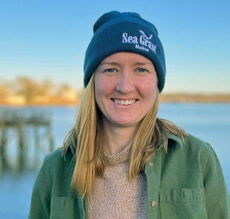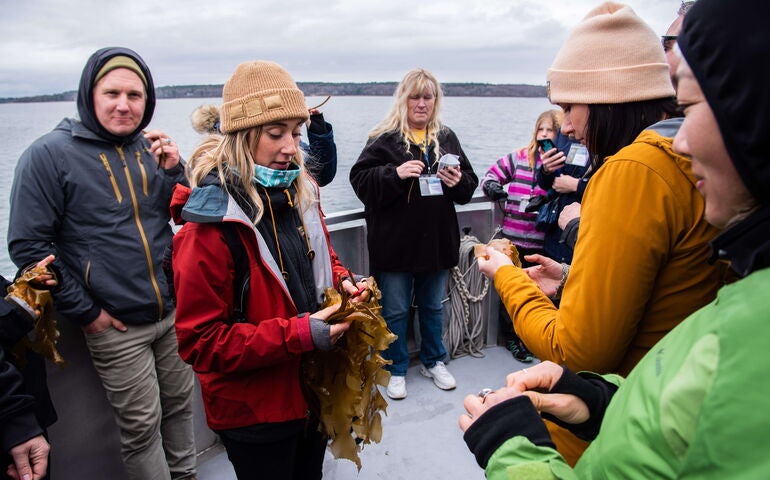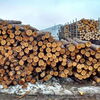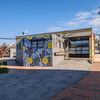
How a workshop on targeted skills could help women in aquaculture
 COURTESY / TIM BRIGGS, NEW HAMPSHIRE SEA GRANT
Last year’s Aquaculture in Shared Waters students get a tour of a kelp farm, led by one of the course directors, Jaclyn Robidoux. The 2024 cohort will be targeted for women.
COURTESY / TIM BRIGGS, NEW HAMPSHIRE SEA GRANT
Last year’s Aquaculture in Shared Waters students get a tour of a kelp farm, led by one of the course directors, Jaclyn Robidoux. The 2024 cohort will be targeted for women.
Women in Aquaculture is a free workshop series, hosted by the Aquaculture in Shared Waters training program, for women and non-binary aquaculturists.
The series focuses on targeted skills, aiming to remove barriers to enter the industry or grow existing businesses and community.
Interested in learning more about the need for a women-only course, Mainebiz talked with Annie Fagan, coordinator of the Maine Aquaculture Hub and a marine extension associate with Maine Sea Grant at the Darling Marine Center in Walpole; and Jaclyn Robidoux, a marine extension associate with Maine Sea Grant in Brunswick.
Here’s an edited transcript.
Mainebiz: How did this series come about?
Annie Fagan: We’ve had higher participation of women in Aquaculture in Shared Waters over the last few years and we were getting feedback from women interested in different topics or in women’s-only programming. We got some funding to do a needs assessment for shared waters in order to get a better sense of whether there are underrepresented groups who could use a different version of what we’re doing.

The needs assessment did a set of interviews with women in the industry and women who have taken training with us before, to get their experience both in the course and at work. They gave some great topics that they’d like to see covered that weren’t being offered.
MB: What type of topics?
AF: We’ve heard a lot from women, ‘How do I adapt the gear? A lot of gear, whether you’re wearing it or it’s gear on the farm, is not necessarily built or designed for women — or anyone who doesn’t find it easy to lift 200 pounds. There’s a lot of interest in troubleshooting that. We’re doing a workshop we’re calling “strong bodies, strong minds.” Strong bodies refers to ergonomics and labor, which is a big issues for anyone. We hope to work on movement exercises and give participants tools and techniques they can use.
MB: What’s an example of a 200-pound lift?
AF: A heavy cage that contains bags of oysters. And those cages get heavier when they’re fouled. That’s a constant challenge for anyone running an oyster farm. In some cases, it comes down to farm design. Maybe don’t use cages; use single bags instead. It could be the way they stand or move. Some people have come up with their own adaptations. In this workshop, we hope to troubleshoot together.
Jaclyn Robidoux: But it’s not one-size-fits-all. There are tons of women who have tried to adapt their farm, their boat, their equipment in different ways. We’re hoping that the women coming to this course will be both women who have farms and also women who are interested in starting farms — putting them together, encouraging that co-learning and taking away lessons not just from instructors but also from peers who are active on the water.
MB: What are some other topics?
AF: We also heard interest from people who have had interrelations on the water that might be challenging, and who want to know how to advocate for themselves. Something a lot of women can probably relate to is trailering. A lot of farmers on the water use public boat access. If you’re not already an expert in driving a trailer, it’s a learning process —and you’re learning in a public place in front of a lot of people.
Several women shared stories of getting comments about needing help, along the lines of, ‘Whose boat is this?’ and ‘Where’s your boyfriend?’ That’s not to say that women don’t handle those things all the time on their own. But some are looking for a place they can learn that skill in a way that’s maybe a little less judgmental, and maybe some tools to advocate for themselves.
MB: The number of women in aquaculture seems to be growing. Do you have any data?
JR: Data about gender in the fisheries and aquaculture is hard to come by. But I’ve seen an estimate that 10% to 20% of farms are owned or run by women. That’s based on assumptions around whose name is on the paperwork, and it doesn’t count employees or downstream processing. Generally, the perception is that aquaculture is more accessible to women than the wild fisheries.
AF: Anecdotally, we’ve had people in other states say, ‘I’m the only female oyster farmer in my state.’ Others see Maine as being ahead of them in that specific context. I anticipate we’ll see that participation grow.
Although the data we have on gender and aquaculture is limited, previous research on gender and oyster farming in Maine and New Hampshire by Natalie Lord at the University of New Hampshire found that 54% of women identified training opportunities as a barrier; similarly, 46% of women and non-binary respondents reported differential treatment at work based on gender as opposed to 0% of men.










0 Comments